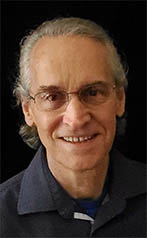Are You Ready to be a Kingmaker?
By Coach Colle Davis
 History
History
Machiavelli’s The Prince was written in the 15th and 16th Centuries during the era of monarchs and cruel despots. The author offered advice to those seeking a higher station, the sycophants, schemers, and hangers-on in the realm, who wanted to stay alive by learning to stay in good graces with the King/Lord.
The French King Louis XIV codified courtly behavior, had it written on cards, and this ‘ticket’ became known as ‘etiquette.’
“To play the game, you have to know the other person’s rules so you can break them.” – Dalai Lama
Background
In my three-plus decades of coaching executives, politicians, business owners, and others holding power, I noticed a pattern:

- Some want to become a leader capable of creating policy and profits. Coaching helped these clients climb the career ladder faster than they thought possible.
2. A much smaller group rode the momentum created by their peers’ progress, survived the setbacks, and rolled with the changes. Over time (years actually), I recognized the smaller group were astute, intelligent, and remarkable people, and they were the Kingmakers who worked people to help others advance in the Court.
PLEASE NOTE: All due credit goes to the Queens and the Kings. When Queens have power, the term Kingmaker is still used. I’ll use the term Kingmaker throughout this piece because it describes the actions, not the gender.
Rules.
 Here is the most challenging guideline to consider before accepting the role of Kingmaker. There are no rules; this is the path of a modern-day Prince, and identifiable behaviors and tools are required to move quickly toward the pinnacle of success while remaining intact and unblooded.
Here is the most challenging guideline to consider before accepting the role of Kingmaker. There are no rules; this is the path of a modern-day Prince, and identifiable behaviors and tools are required to move quickly toward the pinnacle of success while remaining intact and unblooded.
“This information covers the Tools of The Game, not the Rules of The Game
because there are NO RULES to The Game. Again, there are NO RULES
except those used by others to restrict themselves. One more time:
The Game itself has NO RULES.” – The Palace Coup by Colle Davis
Processes.
What skills can you hone as a habitual practice to enhance your Kingmaking prowess?
First step: List everyone you know well enough to call and contact each one. Ask, “What can I do to help advance your career?” Include school contacts, people in organizations you may be part of, and those within your organization and industry.
Your question is your gift to them. It is an opening for you to ask them for their help in the future, and it gives them permission and the confidence to approach you later, and they will remember you and your support. Recruiting everyone you talk to as a potential resource builds an enthusiastic power base.
Kingmaker material:
The number of people who trust you directly correlates to your influence and power.
Aside: Power vs. Control. These words are not interchangeable though they are often mistaken for each other. Here is the difference:

- A person with power allocates resources and assigns others the task of using them to the most significant benefit of the organization.
- A control person oversees the resources to ensure their subordinates properly use them.
- The power person never does the work. The control person shoulders the responsibility of making sure the work is done.
- If you want power, do not do the work. Instead, delegate the work to a control person. The funny thing, the delegate is delighted with their control and respects the power person for giving it to them.
A sports analogy:
- The team manager does not claim to be an athlete because he/she is the leader.
- The coach is not a player on the field. They oversee the distribution of resources to the advantage of the team. Coaches are the control people.
Leverage.

- What can you do, or who do you know that can help one of your contacts?
- Start by contacting each person on your list at least quarterly for the first year. Then monthly for those who respond in any way.
- Those on your list may provide you with more contacts to add to your list, and your POWER grows.
- Keep your fingers on the pulse of your large group, and it will give you unprecedented leverage appearing magical to outsiders.
- With your cadre in place, you become a conduit to make things happen at lightning speed. People will ask if you know someone to fill an opening or a contractor to do a short gig, a good coach, or any of a thousand other items facing them. Your group of contacts may or may not have a person to fit the bill, and you can pass on the best people/ideas to those who ask. Again, magic happens.
Uses.
Assembling a growing group of supportive and eager contacts makes you the focal point in their lives. You become the go-to person who does not have the answers but has the best questions, knows the right people, and provides suggestions on how to move forward.
Years ago, I stopped giving advice and switched to ‘providing suggestions.’ Providing suggestions allows people to follow up on your recommendations or ignore them. Either way, you win.
Pitfalls.
 Here are two early mistakes Kingmakers are prone to making:
Here are two early mistakes Kingmakers are prone to making:
- Not doing follow-ups, forgetting birthdays/anniversaries/events of significance.
- Pushing too hard to help others succeed. Kingmakers have the patience to let their contacts succeed or fail independently. Everyone has the right to fail. They will have fun sharing their successes with you and cry about their failures. Be careful about listening to crybabies; they will eat your time.
Celebrations.
- Reaching milestones and celebrating each one is essential because it allows you to give your people the kudos they crave. Flowers, old fashion cards, and a special meal are all ideas.
- Another possible point of failure is to avoid giving food or alcohol as a reward. Some people cannot indulge them, so don’t tempt them.
Conclusion.
The quickest way to win power is to become a Kingmaker. Let others lead day-to-day minutia and reduce your target profile by working behind the scenes.
When you are vested in others’ outcomes, and they succeed, you succeed. Remember, being a Kingmaker is hard work, rewarding on many levels, and gives you the inside track of your organization. Being a Kingmaker also prepares you to be a top leader.
Side note: If you ever drink to the point of being drunk, you will fail as a Kingmaker; it is a trust issue. If you tend to drink too much, stop drinking or give up the dream of power and being a Kingmaker. There is no slack in this suggestion.
Final caveat.
Being a Kingmaker is not for everyone. In my decades of coaching, I’ve met only a half dozen. They are quiet, successful, and memorable people. Their counsel is sought, suggestions are taken, and their friendships are treasured.

For more tools for becoming a leader or a Kingmaker, contact me. Colle Davis cd****@*****ch.com or 804-467-1536 (EST) or set up a free meeting via Zoom.
